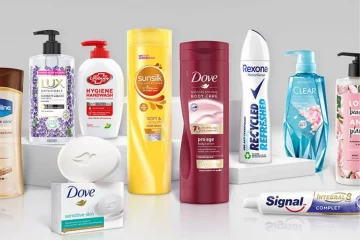The Ultimate Guide to Skin Care: Achieve Healthy and Radiant Skin

Skin Care | Bebevy
Taking care of your skin is crucial for maintaining its health and appearance. Skin care is not just about looking good; it’s also about ensuring your skin functions well as the barrier protecting your body from the outside world. The skin, being the largest organ, requires regular attention to keep it in optimal condition. A good skin care routine can help prevent issues like acne, premature aging, and even skin cancer.
The Basics of Skin Care
Cleansing: The First Step in Skin Care
Cleansing is the foundation of any skin care routine. It removes dirt, oil, and impurities that accumulate on your skin throughout the day. Choose a cleanser that suits your skin type—whether it’s oily, dry, or sensitive. Use lukewarm water and gently massage the cleanser into your skin, then rinse thoroughly. Proper cleansing prepares your skin to absorb other skin care products more effectively.
Exfoliating for Smoother Skin
Exfoliation is a key step in skin care, helping to remove dead skin cells that can clog pores and make your complexion look dull. There are two main types of exfoliants: physical and chemical. Physical exfoliants use small particles to scrub away dead skin, while chemical exfoliants use acids like glycolic or salicylic acid to dissolve them. Aim to exfoliate 1-3 times a week, depending on your skin type and the product you use.
Moisturizing: Hydration is Key in Skin Care
Moisturizing is essential for keeping your skin hydrated and supple. It helps to lock in moisture and create a protective barrier against environmental damage. Choose a moisturizer that matches your skin type and use it daily, especially after cleansing and exfoliating. For daytime, consider a moisturizer with SPF to protect your skin from harmful UV rays.
Advanced Skin Care Techniques
Anti-Aging Skin Care
As we age, our skin undergoes changes such as loss of elasticity and the appearance of fine lines and wrinkles. Anti-aging skin care focuses on products and treatments that target these issues. Ingredients like retinol, peptides, and hyaluronic acid are popular in anti-aging products for their ability to boost collagen production and hydrate the skin. Consistent use of these products can help maintain a youthful appearance.
Treating Acne: Effective Skin Care Solutions
Acne is a common skin care concern that affects people of all ages. Effective acne treatment involves a combination of products that control oil production, reduce inflammation, and kill bacteria. Look for ingredients like benzoyl peroxide, salicylic acid, and niacinamide. Additionally, maintaining a consistent skin care routine and avoiding pore-clogging products can help keep acne under control.
Skin Care for Sensitive Skin
Sensitive skin requires extra care to avoid irritation and inflammation. Choose gentle, fragrance-free skin care products and avoid harsh chemicals. Ingredients like chamomile, aloe vera, and ceramides can soothe and strengthen sensitive skin. Patch testing new products before applying them to your face can also help prevent adverse reactions.
Natural and DIY Skin Care
Benefits of Natural Skin Care Products
Natural skin care products are made from ingredients derived from plants and minerals. They are often free from synthetic chemicals and are considered gentler on the skin. Many people prefer natural skin care products for their eco-friendly and sustainable benefits. Ingredients like coconut oil, shea butter, and green tea extract are popular in natural skin care for their nourishing properties.
DIY Skin Care Recipes
Creating your own skin care products at home can be fun and rewarding. DIY skin care recipes allow you to customize products to suit your specific needs. For example, a simple honey and yogurt mask can hydrate and brighten your skin, while a sugar and olive oil scrub can exfoliate and smooth your complexion. Always ensure your ingredients are fresh and properly stored to avoid contamination.
Seasonal Skin Care Tips
Summer Skin Care
In summer, your skin may produce more oil due to the heat and humidity. Opt for lightweight, oil-free skin care products and don’t forget sunscreen. Reapply sunscreen every two hours when outdoors and wear protective clothing. Hydrating products like aloe vera gel can soothe sunburn and keep your skin cool.
Winter Skin Care
Winter can be harsh on your skin, leading to dryness and flakiness. Use a richer moisturizer to combat the dryness and consider incorporating a hydrating serum into your routine. Humidifiers can also help maintain moisture levels in your skin during the colder months. Avoid hot showers as they can strip your skin of natural oils.
Skin Care Myths Debunked
Myth: Oily Skin Doesn’t Need Moisturizer
Many people with oily skin believe they should skip moisturizer, but this is a myth. Oily skin can still be dehydrated and benefit from a lightweight, oil-free moisturizer. Skipping moisturizer can actually cause your skin to produce more oil to compensate for the lack of hydration.
Myth: Expensive Skin Care Products Are Always Better
Price doesn’t always equate to quality in skin care. Many affordable products contain effective ingredients that can deliver great results. It’s more important to choose products that suit your skin type and concerns rather than focusing on the price tag.
Building a Personalized Skin Care Routine
Identifying Your Skin Type
Understanding your skin type is crucial for choosing the right skin care products. The main skin types are normal, oily, dry, combination, and sensitive. Pay attention to how your skin feels throughout the day and how it reacts to different products to determine your skin type.
Creating a Routine That Works for You
A basic skin care routine should include cleansing, exfoliating, moisturizing, and sun protection. Start with these steps and gradually introduce additional products like serums and masks based on your specific needs. Consistency is key in skin care, so stick to your routine and give products time to show results.
The Role of Diet and Lifestyle in Skin Care
Eating for Healthy Skin
What you eat can have a significant impact on your skin’s health. A balanced diet rich in antioxidants, vitamins, and healthy fats can promote glowing skin. Foods like fruits, vegetables, nuts, and fish are beneficial for your skin. Staying hydrated by drinking plenty of water is also essential.
Lifestyle Factors Affecting Skin Care
Factors like stress, sleep, and exercise play a role in your skin’s condition. High stress levels can lead to breakouts, while adequate sleep allows your skin to repair itself. Regular exercise improves circulation, which can give your skin a healthy glow. Managing these lifestyle factors can enhance your overall skin care routine.
Conclusion
Skin care is a vital part of maintaining your overall health and well-being. By understanding your skin type, choosing the right products, and maintaining a consistent routine, you can achieve healthy and radiant skin. Remember that skin care is a personal journey, and what works for one person may not work for another. Listen to your skin’s needs and adjust your routine accordingly for the best results.







